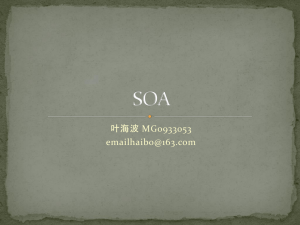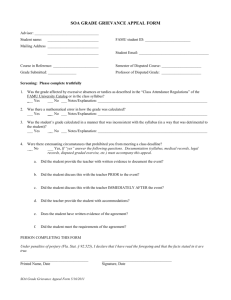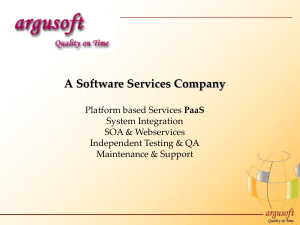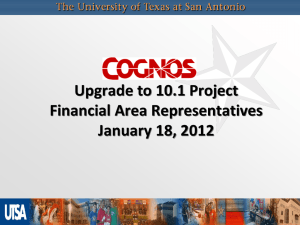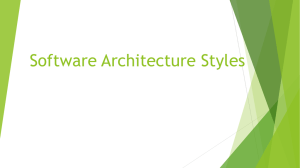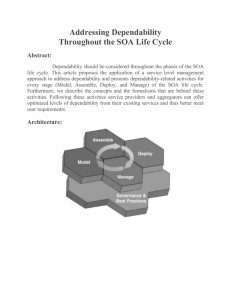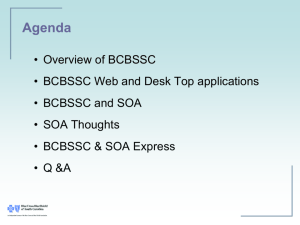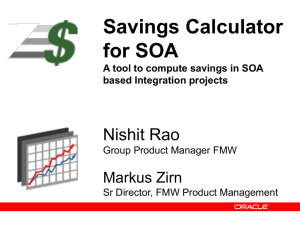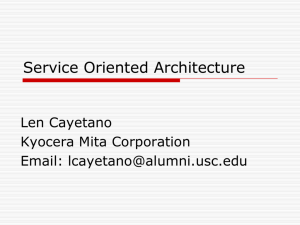External Review - Georgia State University
advertisement
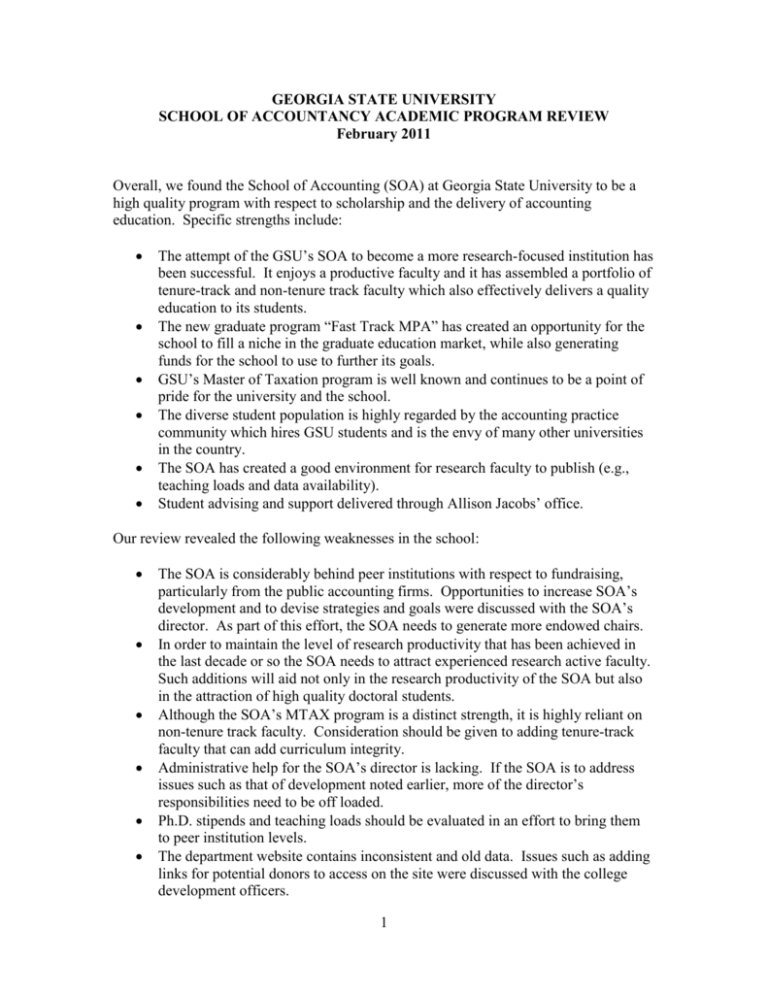
GEORGIA STATE UNIVERSITY SCHOOL OF ACCOUNTANCY ACADEMIC PROGRAM REVIEW February 2011 Overall, we found the School of Accounting (SOA) at Georgia State University to be a high quality program with respect to scholarship and the delivery of accounting education. Specific strengths include: The attempt of the GSU’s SOA to become a more research-focused institution has been successful. It enjoys a productive faculty and it has assembled a portfolio of tenure-track and non-tenure track faculty which also effectively delivers a quality education to its students. The new graduate program “Fast Track MPA” has created an opportunity for the school to fill a niche in the graduate education market, while also generating funds for the school to use to further its goals. GSU’s Master of Taxation program is well known and continues to be a point of pride for the university and the school. The diverse student population is highly regarded by the accounting practice community which hires GSU students and is the envy of many other universities in the country. The SOA has created a good environment for research faculty to publish (e.g., teaching loads and data availability). Student advising and support delivered through Allison Jacobs’ office. Our review revealed the following weaknesses in the school: The SOA is considerably behind peer institutions with respect to fundraising, particularly from the public accounting firms. Opportunities to increase SOA’s development and to devise strategies and goals were discussed with the SOA’s director. As part of this effort, the SOA needs to generate more endowed chairs. In order to maintain the level of research productivity that has been achieved in the last decade or so the SOA needs to attract experienced research active faculty. Such additions will aid not only in the research productivity of the SOA but also in the attraction of high quality doctoral students. Although the SOA’s MTAX program is a distinct strength, it is highly reliant on non-tenure track faculty. Consideration should be given to adding tenure-track faculty that can add curriculum integrity. Administrative help for the SOA’s director is lacking. If the SOA is to address issues such as that of development noted earlier, more of the director’s responsibilities need to be off loaded. Ph.D. stipends and teaching loads should be evaluated in an effort to bring them to peer institution levels. The department website contains inconsistent and old data. Issues such as adding links for potential donors to access on the site were discussed with the college development officers. 1 The college physical facilities are inadequate for purposes such as student meeting space. Historical and Current Context: The programs offered by the SOA appear to be appropriate from a disciplinary perspective. A wide range of programs are offered to serve the needs of students from undergraduate to Ph.D. Except for the need for the recruitment of senior research active faculty identified above, the number, composition, and research productivity is sufficient to support these various programs. The peer institutions selected by the SOA appeared to be appropriate. Progress Toward Goals and Objectives: As noted above, the SOA has made great progress toward their strategic plan goal of building a world class faculty. As also noted, additional research active faculty will need to be recruited to maintain and surpass that goal. Quality of Curriculum: At all levels evaluated (undergraduate, masters, and Ph.D.), the SOA’s curriculum reviewed showed high levels of quality. It was noted that the addition of coursework on governmental accounting would be beneficial. Quality of Students: The quality of graduate students is high, with Certified Public Accountant exam scores among the best in the state. At the undergraduate level, students are often unprepared for the rigor of the accounting curriculum, as documented by the DFW rates in the first junior level financial and managerial accounting courses. Quality could be improved through higher entrance requirements or a qualifying examination between the principles level courses and the junior level courses. Quality of the Faculty: The school has high quality faculty. It has adopted a “portfolio” approach in which tenure-track and non-tenure track faculty fill roles in the school including various balances of research and teaching. This approach has been effective. Students perceive a high value-added from their instructors and appreciate the real-world experience they bring to the classroom. However, as noted above, the school currently needs the addition of research active experienced faculty to maintain its research reputation. This problem is exacerbated by the fact that some research active faculty that helped develop the school’s research reputation are nearing retirement. 2 Resource Adequacy: Generally, resources are at or near that of peer institutions. However, as with most schools, increased generation of outside funding will provide the school with resources to support excellence in the future that may not be feasible with internal funding. As noted above, more efforts in the development area should help the school become more selfreliant. Finally, the resources provided the SOA director do not measure up to those provided at peer or aspirant accounting departments, considering that the role of the accounting department head is markedly different in terms of alumni and employer relations, issues related to professional certification, separate accreditation, multiple masters programs, etc. Goals and Objectives: The school should develop goals for fundraising, particularly with the public accounting firms. These efforts will allow the school to pursue other goals such as that of attracting faculty with chaired positions and increasing Ph.D. student stipends and decreasing their teaching loads. 3

